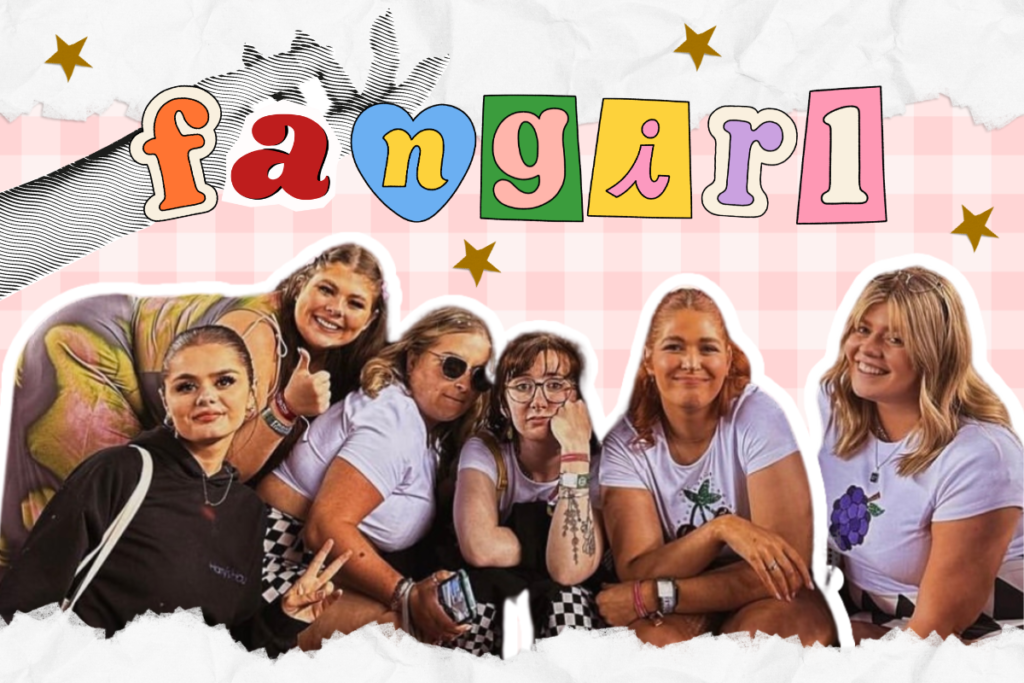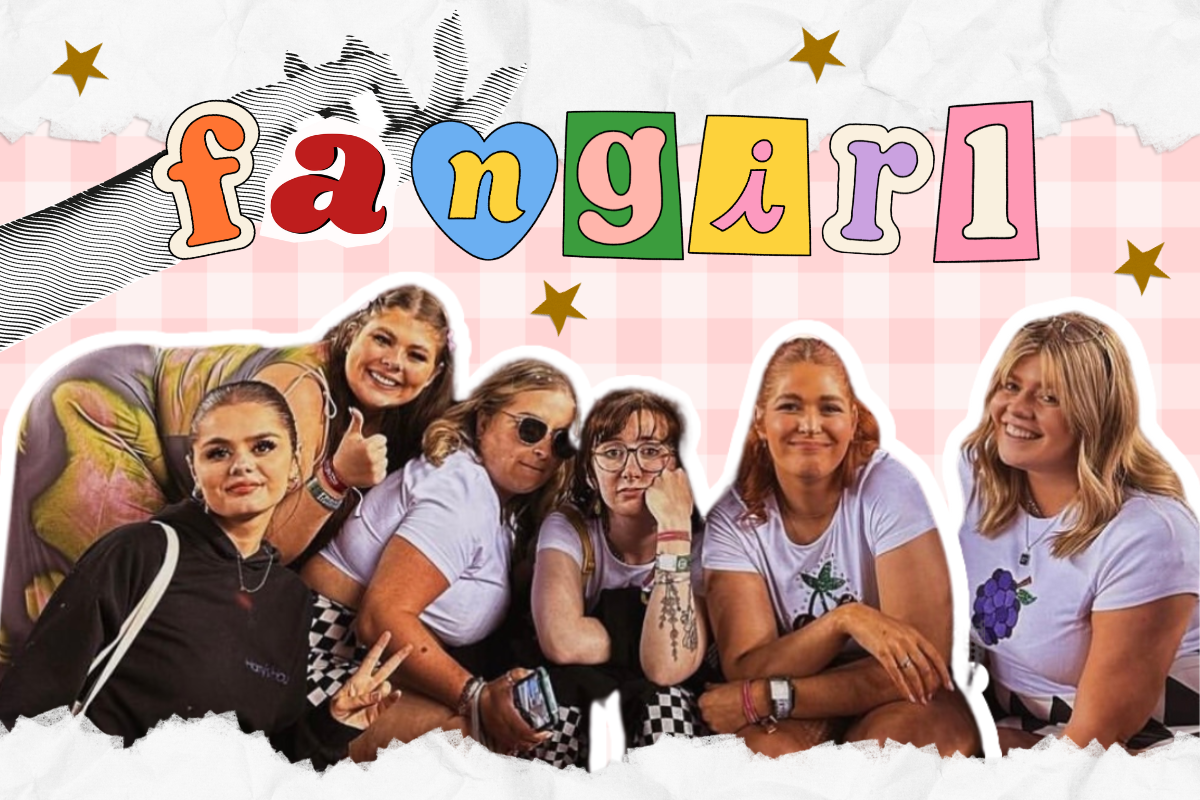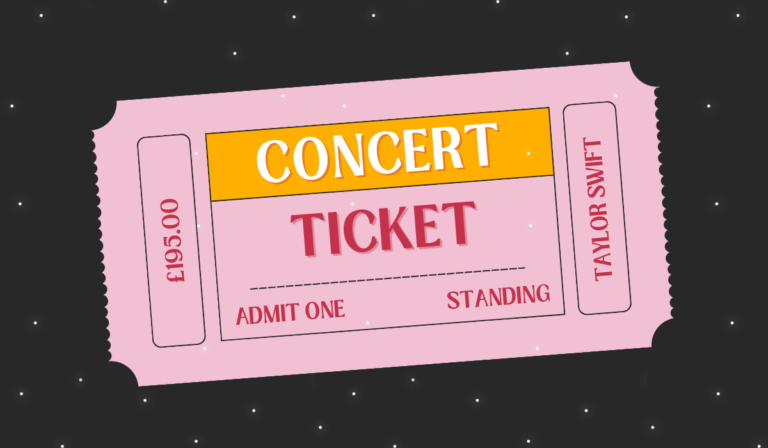Hot Take: It’s Time To Claim Your Fangirl Status

I was born on the tail of the nineties boyband revolution. Too young to appreciate the likes of NSYNC, Backstreet Boys, Boyzone and Take That, I grew up in the early noughties awaiting my chance to experience that world for myself.
Unlike most children, bedtime stories in my house would not be fictional. Instead, they’d be in-depth recounts of my parent’s experiences with earlier bands like the Bay City Rollers, fuelling my interest in the world of music from an incredibly young age.
As I grew older and noughties pop produced the new age of mainstream boybands, I embraced this world with open and welcoming arms. Saturday nights would be headlined by myself in the lounge, with home videos showing a blonde-haired, blue-eyed girl jumping up and down on the sofa, wielding her imaginary electric guitar just like she’d seen on TV, or heard in previous bedtime stories.
This fascination with music and boybands continued right through to my teenage years, with One Direction and 5 Seconds of Summer capturing both my heart and mind seemingly overnight. Hours of my week would be spent on social media, and all the money I earned from my Saturday job would be saved and spent on concert tickets. But when adulthood loomed and I left secondary education, I was led to believe that I’d now outgrown the world of music fandom. I thought that that chapter of my life, one which had played host to some of my fondest memories, would become a thing of the past. I look back now and simply say oh, how wrong was I?
Since the earlier days of Frank Sinatra and The Beatles, female music fans have existed in a highly contested cultural space. Shamed for their interests and ridiculed for their actions, the term ‘fangirl’ was and still is, shrouded by connotations of hysteria, delusion, and hyperactivity. The early nineteen-forties saw the beginnings of fandom culture, with Frank Sinatra and his ‘Bobby Soxers’ the first prominent example of popular music fandom. Grainy, monochromatic pictures from the time depict a story we are now all too familiar with. Fans laid up outside venues awaiting their chance to catch a glimpse of their idol and would turn out in their droves to greet him in each new city. They’d surge and scream and throw their arms out to touch him, even if it was just for a fleeting second, some with tears trickling down their cheeks.
Does this description sound somewhat familiar? That’s because the tropes of fandom culture have barely changed across its seventy-year lifespan. Scenes such as these have become part and parcel of the wider fan experience and deliver some of the culture’s most defining images.
But it is also these images that have created much of the discussions which surround fandom and its perceived societal legitimacy. Thinking back to the mid-twentieth century, society was working on a completely different page. Societal and gender norms dictated that women were subordinate, raised to become housewives and Mothers, and knew their position both within a relationship and within society. The emergence of these fangirls, who with their loud and outspoken actions challenged everything the rulebook originally quoted, sparked great discussion about the legitimacy of teenage fandom. In the controversial article written by New York Statesman journalist, Paul Johnston, he commented on the wake of Beatlemania, referring to female fans as some of the “least fortunate of their generation, the dull, the idle, the failures.” Written in 1964, these comments were a sign of the times.
This rigorous form of vetting undertaken by outsiders was deeply rooted in society’s battle with rife misogyny and sexism. Take football as an example of this. You’ve never seen Manchester United fans branded with comments like “hysterical” or “childish behaviour”, yet with female music fans, these are common terms. Both communities behave in similar ways, but because popular music fans tend to be young and female, it’s easy to tarnish them with a biased and slanderous brush.
For the millions of girls who subscribe to fandom ideology, their experience will at some point, sadly be tarnished by negative and ill-informed comments. It could be a judging eye, it could be a direct Tweet, it could be teasing by a peer at school, or it could just be a poorly-worded headline in the paper. Ask any female fan, and they will most likely have experienced one or more of those scenarios. It is for this reason amongst others, that communication among fans is now typically excersized online.
Following the loss of publications such as Shout and Sugarscape in the early 2010s, female fandom was cruising into choppy waters. There was no longer the one-stop shop for all your pop-culture needs; no more weekly gossip columns or freebie pull-out posters that’s blue-tacked remains would leave your walls stained for years to come. As teen publications fell by the wayside, the space for fans amongst the mainstream media gradually became smaller and smaller. Migrating into the digital space, fangirls re-staked their territories and did so with force on sites like Wattpad and Tumblr, re-writing the narratives which had been lost due to their eviction from the mainstream. But for those who wanted that one-stop-shop, nothing had come along to take up the reins.
Amongst the craziness of the COVID-19 pandemic, we began to lay the foundations for a new pop-culture platform. Now a weekly podcast and web publication, That Fangirl Life champions female fans of musicians, celebrities, and everything in between. Over the last three years, we have worked tirelessly to build a community that wants to redefine what it means to be a fearless fan in the twenty-first century.
Saying goodbye to outdated connotations of hysteria and obsessive practices, we welcome fangirls with open and supportive arms, offering a place where they can express their love for pop culture freely without fear of judgement. This very website features voices solely of those from within the fan community, championing those who have been marginalised by the mainstream and giving them a platform to share their personal stories. Whilst we can’t offer free pull-out posters, we can offer a platform that unites under one same goal, and a safe space to meet new fans. What more could the twenty-first-century fan want, hey?
Fandoms continue to illustrate their influence on young people around the world; their popularity only increases as time marches on. The pandemic allowed all of us to slow down and take a step back, re-kindling relationships with some of our former pre-teen passions. Within the last few years, being a fangirl has become something to be proud of. People are happy to claim their title, wearing it like a badge of honour in their day-to-day lives both digitally and in reality. For so many people, music is a powerful vehicle for self-expression, so why should you be ashamed of that? I know that I’m not.
Music fandom is no longer something exclusive to teenage girls. Anyone at any age can be a female music fan. So, really, it begs the question: what’s stopping you?







